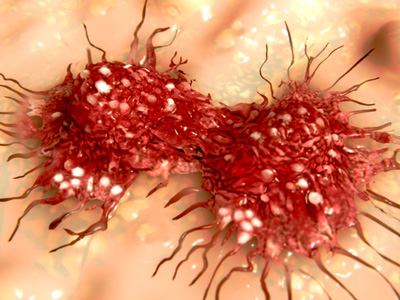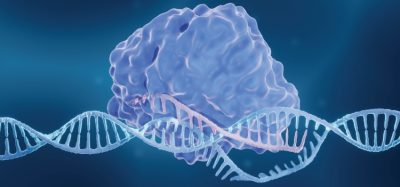New immunological pathway to treat bone tumours
Posted: 25 January 2024 | Drug Target Review | No comments yet
Researchers observed significant upregulation of Siglec-15 in the tumour microenvironment in bone tumour samples from breast cancer patients.

Scientists in the lab of the chemist Dr Han Xiao at Rice University have identified a new immunological pathway to treat bone tumours, one of most prevalent forms of metastases in breast cancer patients.
Lead author Dr Yixian Wang, a Rice graduate student in the Han lab, explained: “More than 70 percent of people with metastatic breast cancer will see the cancer cells move to bone, which can lead to skeletal-related events like bone pain, fractures, and hypercalcemia.” He highlighted: “There are now several immunotherapies that can potentially benefit breast cancer patients with metastases, but they aren’t effective in patients with bone tumours.”
Siglec-15
New immunotherapies named checkpoint inhibitors can reveal tumours, enabling immune cells to combat the abnormal cells. However, although checkpoint inhibitors are effective for many patients, they do not work for everyone. Clinical trials have demonstrated little to no response when used to treat bone metastases. Therefore, Dr Xiao and his team aimed to discover another pathway that might be more effective in destroying them.
Dr Xiao explained: “We thought there must be another novel checkpoint axis we could target for the breast cancer cells in bone…And we discovered a unique glyco-immune checkpoint axis in bone metastases that involves a protein called sialic acid-binding Ig-like lectin (Siglec)-15. We learned that it suppresses immune cells in the bone.”
The team observed a significant upregulation of Siglec-15 in the tumour microenvironment (TME) in bone tumour samples from breast cancer patients. They then demonstrated that this receptor plays a key role in hiding bone tumours from the immune surveillance.
“Current FDA-approved checkpoint inhibitors are mediated by protein-protein interactions that suppress immune cells,” Dr Xiao detailed. “Siglec-15, however, is a glyco-immune checkpoint inhibitor. Instead of binding to a protein, Siglec-15 binds to the sugars you find on the cell surfaces ⎯ and that’s how it can suppress the immune system. This is an entirely new type of immune checkpoint that offers great promise for future treatment for bone cancers.”
The team conducted several cell culture experiments to study Siglec-15 interactions in the bone TME, and discovered it is involved in crosstalk between tumour cells and critical immune cells like T-cells and macrophages, as well as bone-specific cells, osteoclasts.
Glycolipids and glycoproteins can be found on all cells and play an important role in immune modulation. Dr Xiao added: “These findings offer us an opportunity to study these glyco-immune checkpoint inhibitors more in depth and identify those that can help bone tumours stop evading immune recognition.”
Antibody therapy
Simply modulating the behaviour of Siglec-15 could be enough to treat bone metastases. A powerful immune response was triggered when the team injected a monoclonal antibody that targets Siglec-15 into an animal model of metastatic breast cancer with bone tumours. The tumours reduced after only one or two doses of the antibody therapy.
Dr Wang concluded: “I’m very excited about the potential therapeutic outcome for a therapy like this. This could be a very helpful treatment for breast cancer patients in the future.”
The scientists will continue to study the new and unique biology of glyco-immune checkpoint pathways in the TME, as these pathways could provide insights to improve current and future immunotherapies. Furthermore, Dr Xiao would like to see if targeting Siglec-15 might be helpful in treating other kinds of cancers that affect bone.
The study was published in the Proceedings of the National Academy of Sciences (PNAS).
Related topics
Antibodies, Cancer research, Cell Cultures, Immunotherapy, Oncology, T cells
Related conditions
bone cancer, Breast cancer, Cancer Research
Related organisations
Rice University
Related people
Dr Han Xiao (Rice University), Dr Yixian Wang (Rice University)







